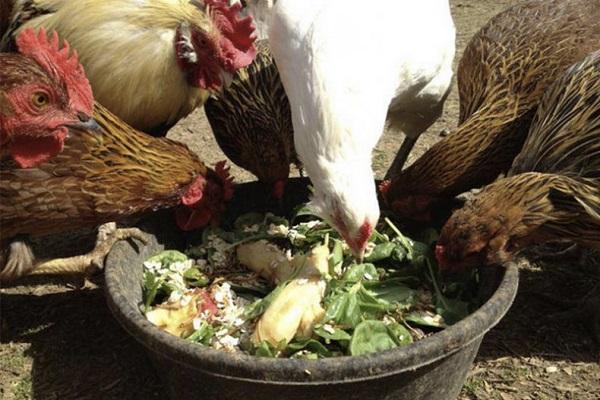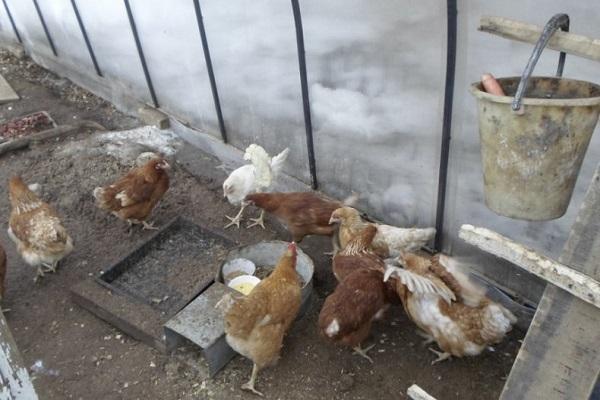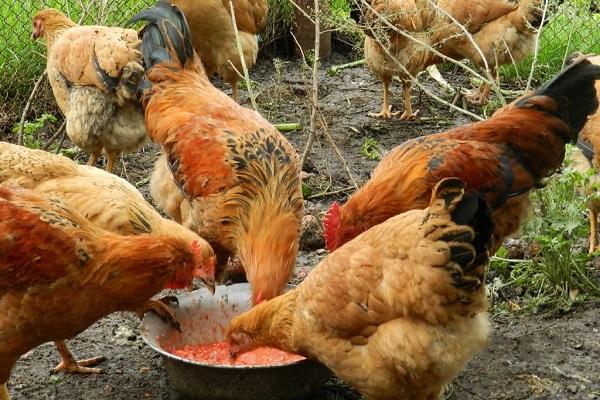Beginning poultry farmers cannot understand whether it is possible to feed chickens and hens beets: red, fodder, sugar. Some sources advise including this root vegetable in the diet of birds, while others, on the contrary, recommend abstaining. It's all about varietal diversity. Light-colored root vegetables that are not colored red can be given to chickens. Such vegetables will save on grain feed and lead to rapid weight gain. Chickens should not be fed only red beets.
Can chickens be given beets?
The main food for laying hens is grain. True, grain feed does not contain all the nutrients necessary for chickens.That is why they try to supplement the diet of laying hens with various vegetables.
The composition of beets is rich in carbohydrates, vitamins and microelements that are beneficial for chickens. This root vegetable can be given raw or cooked. The vegetable is quickly digested by the stomach and, when choosing the right dosage, does not lead to negative consequences.
Red
This variety is considered an indispensable product on our table, but it is not advisable to give it to chickens. This vegetable contains a lot of vitamins and microelements, but they will not bring any benefit to laying hens. The red root vegetable is a laxative and its consumption may cause chickens have diarrhea and depressed state. In addition, this vegetable colors the poultry’s feces and cloaca red.
Quite healthy chickens may be mistaken by their relatives for sick ones, which will lead to pecking and cannibalism in the chicken coop. It is better not to provoke the bird and not to give it red root vegetables.
Stern
Fodder beets are mixed with boiled potatoes or mixed feed. Chickens eat this vegetable with pleasure. It enriches the poultry’s diet with useful substances and vitamins, egg production increases in laying hens, they become more active, and get sick less.
Fodder varieties are specially grown for winter feeding of laying hens.
Root vegetables are grated, then this food is poured into wet mash. The daily norm for one bird is 30-50 grams. In summer, chopped green tops can be added to grain feed.
Sugar
Sugar beets are rich not only in vitamins and minerals, but also in easily digestible carbohydrates. The use of this product leads to rapid weight gain. This food is quickly digested by the stomach and gives the bird a lot of energy. This product is especially valuable for feeding chickens.True, it is better to give the chicks boiled root vegetables. The daily norm is no more than 5-10 grams. With age, the amount of such food can be increased.
Adult chickens are given 30-50 grams of sugar beets per day. The root vegetable is ground on a grater and mixed with grain feed.
Boiled
Fresh vegetables can irritate the bird's intestines and cause diarrhea. It is better to feed chickens boiled or steamed product. True, it is added to the main food in strictly limited quantities, only after complete cooling.
Boiled root vegetables are as healthy as fresh ones. This product retains all nutrients and can be combined with grain and green feed.
True, the daily norm for one chicken is no more than 30-50 grams.
Benefits and harms of the product
Despite the beneficial properties of red beets, it is better not to feed laying hens this vegetable. A product of this color should not be present in the diet of herd animals.
It is recommended to feed laying hens year-round with fodder beets. This vegetable contains vitamins C, B1,2, PP, amino acids, and carbohydrates. It is useful to add it to the menu of birds during vitamin deficiency, in the fall, during molting, in winter, and in early spring. It has a beneficial effect on digestion, accelerates the digestion of feed, and helps increase body weight. True, it should be taken only in minimal quantities, that is, no more than 30-50 grams per day (for one adult laying hen).
The chicken should not overeat, otherwise it will develop diarrhea, which will subsequently lead to a depressed and lethargic state. In addition to feed, it is useful for chickens to be given sugar beets with a high carbohydrate content. With this product the bird will begin to recover faster.
Vegetables are given to chickens in strictly limited quantities.The correct dosage does not harm, but, on the contrary, improves the condition of the birds. Chickens become more active, eat better, and gain weight faster. Laying hens increase egg production.
How to properly feed chickens with beets?
Fodder or sugar beets should be introduced into the diet of chickens gradually, starting from 10-15 days of life. This root vegetable is an important source of vitamins, minerals, and carbohydrates. It is ground on a grater and mixed with boiled potatoes or mixed feed. In summer, chickens are fed chopped green tops.
For the first feeding, chickens are given no more than 5 grams of crushed feed. Then the dosage is gradually increased. The daily norm for an adult laying hen is 30-50 grams. If a product causes severe diarrhea, it can be eliminated from the diet for a while. After 2 weeks, it is advisable to resume feeding this food. True, boiled root vegetables are suitable for laying hens that have an overly sensitive stomach, but it is better to reduce the consumption rate.
Are there any contraindications?
Fodder or sugar beets can be fed to chickens in strictly limited quantities. The daily requirement for crushed feed is only 30-50 grams per head. Exceeding the dosage can lead to diarrhea or depression in chickens. In this case, laying hens are stopped feeding these products. True, it will not be possible to do without such valuable and cheap food.
It's better to take a short break and watch the birds. Perhaps the diarrhea was caused by some other food. After all, all large poultry farms feed chickens fodder or sugar beets in huge quantities.
After some time, you can resume feeding the birds with this food. True, instead of fresh, it is better to give chickens boiled root vegetables. The taste of vegetables will only improve after heat treatment.Boiled root vegetables have a lesser laxative effect; this product does not irritate the intestinal receptors, therefore, in case of intolerance, fresh vegetables can be replaced with boiled ones at any time.


















